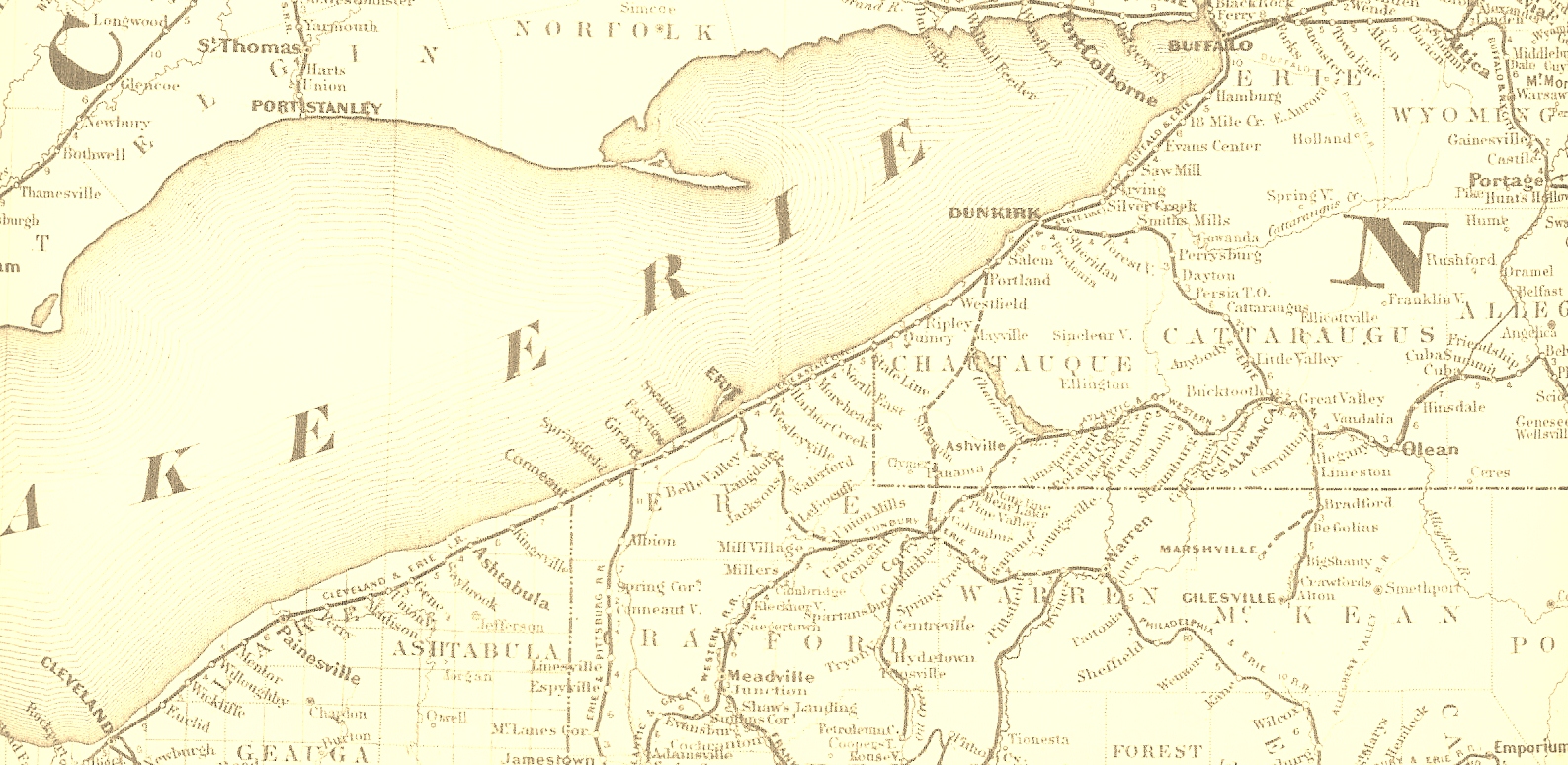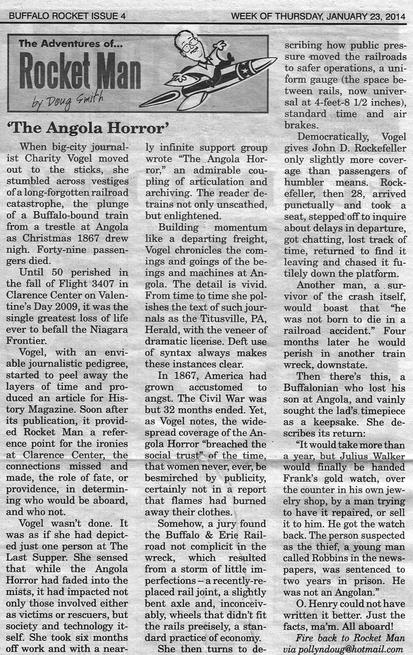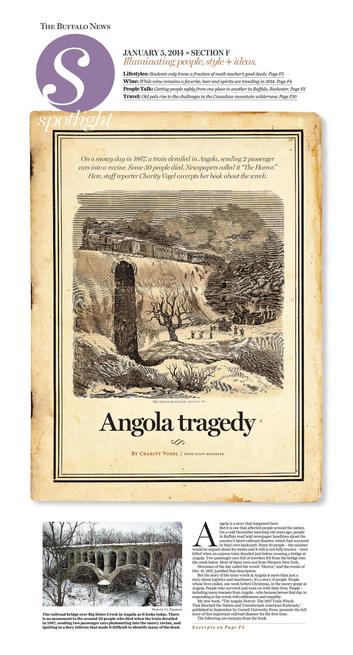The 1867 Train Wreck that Shocked the Nation and Transformed American Railroads
Make sure to visit the Angola Horror:
on Facebook
Twitter:
And, bookmark us!
Railroad’s eastbound New York Express derailed as it approached the high truss bridge over Big Sister Creek, just east of the small settlement of Angola, New York, on the shores of Lake Erie. The last two cars of the express train were pitched completely off the tracks and plummeted into the creek bed below. When they struck bottom, one of the wrecked cars was immediately engulfed in flames as the heating stoves in the coach spilled out coals and ignited its wooden timbers. The other car was badly smashed. About fifty people died at the bottom of the gorge or shortly thereafter, and dozens more were injured. Rescuers from the small rural community responded with haste, but there was almost nothing they could do but listen to the cries of the dying—and carry away the dead and injured thrown clear of the fiery wreck. The next day and in the weeks that followed, newspapers across the country carried news of the “Angola Horror,” one of the deadliest railway accidents to that point in U.S. history.
On December 18, 1867, the Buffalo and Erie
In a dramatic historical narrative, Charity Vogel tells the gripping, true-to-life story of the wreck and the characters involved in the tragic accident. Her tale weaves together the stories of the people—some unknown; others soon to be famous—caught up in the disaster, the facts of the New York Express’s fateful run, the fiery scenes in the creek ravine, and the subsequent legal, legislative, and journalistic search for answers to the question: what had happened at Angola, and why?
The Angola Horror is a classic story of disaster and its aftermath, in which events coincide to produce horrific consequences and people are forced to respond to experiences that test the limits of their endurance. Vogel sets the Angola Horror against a broader context of the developing technology of railroads, the culture of the nation’s print media, the public policy legislation of the post–Civil War era, and, finally, the culture of death and mourning in the Victorian period. The Angola Horror sheds light on the psyche of the American nation. The fatal wreck of an express train nine years later, during a similar bridge crossing in Ashtabula, Ohio, serves as a chilling coda to the story.
Dr. Charity Vogel
More Praise for The Angola Horror:
On Bookshelves Now
Several "Meet the Author" events now scheduled in 2014.
The Buffalo News announces release of The Angola Horror on Sept. 10.
"On December 18, 1867, the New York Express train from Cleveland to Buffalo derailed in frigid temperatures at Angola, NY, resulting in horrific injuries and heavy loss of life. Charity Vogel has written an exhaustive history of the accident. . . . Her narrative tracing the train's route builds suspense with every mile and station until the train meets its doom. . . . Verdict: This is history writing at its best, as Vogel immerses her readers in the event's 1867 context. Highly recommended."—Library Journal (1 July 2013) – STARRED REVIEW
"In well-researched and often graphic detail, author Charity Vogel recounts the devastating train disaster in Angola, New York, that changed the way Americans thought about rail travel....
Vogel weaves a gripping tale, drawing out details of the events themselves and of the lives of the passengers affected by the tragedy, many of whom hailed from Western Pennsylvania. The young and old, married and single, country-dwellers and city folk were equally impacted.
Even the rich were touched by the day’s awful events: John D. Rockefeller (of Standard Oil fame) missed the train by minutes, nearly a victim of the Angola Horror himself. The resulting book fascinates and horrifies, putting into perspective the assumptions that many readers have about 19th-century transportation, and relates to many modern-day fears we share with travelers from centuries past.
Reviewed by Kelly Anderson Gregg,
Assistant Editor of Publications,
Heinz History Center.
Buffalo News Spotlight - Jan. 5, 2014
The Angola Horror
2013/14 BookTour










